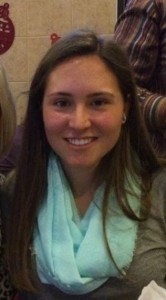My father told me once that the only people you can ever truly rely on for support are your family. This is the only occasion I can think of that my father has been completely and unquestionably wrong. Since developing an eating disorder, I have found a team of allies that includes family and beyond, and continues to grow even today.
When I say “allies” I don’t just mean parents or guardians who helped pay for therapists and nutritionists, or cousins, aunts, uncles, and grandparents who offered unconditional support and kind phone calls. Family members are, of course, invaluable allies. But when I say “allies” I also mean the friends, roommates, classmates, even acquaintances, who have stuck around with no obligation whatsoever to do so. While family can often be easiest and most comfortable to lean on, part of recovering from an eating disorder is leaning on the people who are not quite as easy to be vulnerable with.
Vulnerability is an eating disorder’s worst nightmare. How could the advice of a friend possibly make you feel any more secure than the control you can obtain by rigidly monitoring your diet? Why have a heart-to-heart with your roommate when it would hurt much less to just go for a run until you don’t feel anything anymore? The answers to both of these questions are disturbingly realistic: there are some things that an eating disorder can do that your allies can’t.
The difference is, however, that the eating disorder does these things to you, but your allies do these things for you. Your allies can give you a hug and squeeze you tight; your eating disorder cannot. Your allies can make you laugh until you cry; your eating disorder can just make you cry.
Allowing yourself to be vulnerable with other people is truly terrifying, especially after weeks, months, or even years of keeping your emotions and pains to yourself. It may take time, but it is beyond worth it. Humans by nature are social beings, and to deny this is to deny our humanity. We are all humans; we all crave the love of others. We all have allies; but maybe we just haven’t turned to them yet. If you have people who love you (and we all do), then you have allies. The journey of recovery is impossible without allies. It does not matter how many you have – it just matters how much they care.
So, when I address “An Open Letter to My Allies,” to whom am I writing?
To my family who will provide for me in any way possible to ensure my recovery.
To my friends from high school who did not flinch or turn away when I told them what I was going through, but rather turned towards me and asked how they could help.
To my roommates who have cried tears of empathy to try to take away some of the pain I have felt onto themselves.
To my best friend who watched my eating disorder take hold of me right before her eyes, felt it push her away, but continued to love me as hard as she could until I realized why I deserve love.
There is no way to express gratitude to your allies in a way that feels adequate. All we can do is lean on them and know that we couldn’t do this without them. And that is more than enough.
 20 year old undergraduate student at the University of North Carolina at Chapel Hill. Diagnosed with depression, bulimia, and OSFED in June of 2015. Trying to get my life back through mental health advocacy and doing the things I love, which include but are not limited to: spending time with friends and family, going to the beach, playing frisbee, running, swimming in the ocean, baking, and traveling in the United States and beyond.
20 year old undergraduate student at the University of North Carolina at Chapel Hill. Diagnosed with depression, bulimia, and OSFED in June of 2015. Trying to get my life back through mental health advocacy and doing the things I love, which include but are not limited to: spending time with friends and family, going to the beach, playing frisbee, running, swimming in the ocean, baking, and traveling in the United States and beyond.
If you enjoyed this post, please take a few moments to leave a comment, or share with your friends using the share buttons below.








Leave A Comment